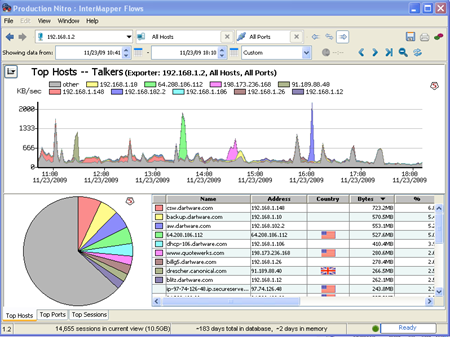

Copy and paste the example snmpwalk command from your controller ( Organization > Settings > SNMP) and place it in a terminal.Save the MIB file from the dashboard ( Organization > Settings > SNMP > Download MIB) to the proper snmpd directory.Follow these instructions on Debian-based systems:
#Intermapper add a mib install#
On a Linux-based system, you can install an SNMP package to achieve the same results.

#Intermapper add a mib password#
When using v3, Cisco Meraki devices will use SHA1 for authentication and DES for privacy, with the configured password used for both. If v3 is selected, you will need to configure a username and password.

SNMP v1/v2c sends the community string in plain text. Version 3 adds the ability to encrypt the communication between the manager (network management system) and the agent (Meraki device). Using SNMP to directly poll individual devices provides the ability to choose between SNMP v1/v2c or v3. These settings can be found under Network-wide > General > Reporting: Individual Meraki devices can also be polled locally. In this scenario, the SNMP traffic would stay within the local network and each device would need to be polled from the network management system. The following are supported when polling the dashboard: GetRequest and GetNextRequest snmp GET methods. Meraki uses the read-only community string type. Note: Meraki SNMP access only supports get requests, so no changes to the dashboard configuration can be made using SNMP.


 0 kommentar(er)
0 kommentar(er)
